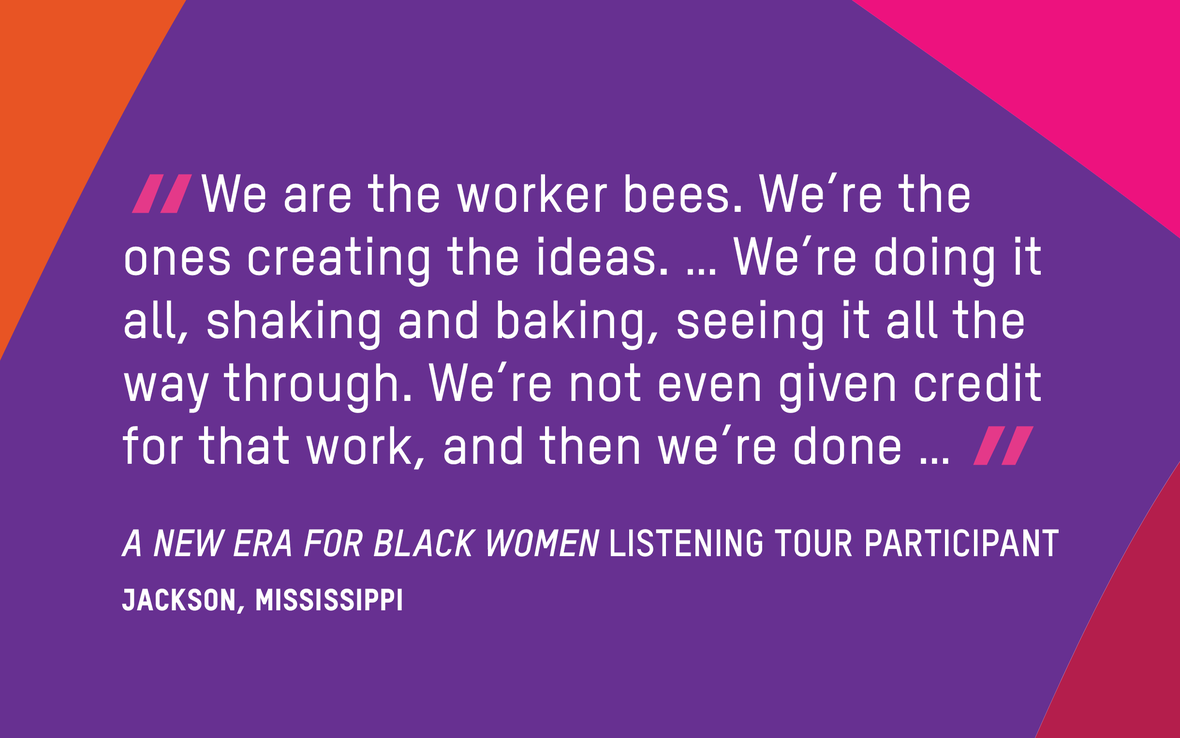We are sounding the alarm to identify and acknowledge what’s happening at this moment in history; Black women’s unemployment is a man-made disaster. A threat to Black women’s livelihoods should be more than a signal. Let’s call it what it is - an emergency.
Day by day, the Trump administration is destabilizing the lives of working-class Black women, and the One Big Beautiful Bill Act (OBBBA) is set to pour fuel on the fire. Deep cuts to U.S. federal staffing and programming (DOGE reductions) and the resurgence of anti-DEI bias have pushed over 300,000 Black women out of the workforce — equivalent to the population of St. Louis, MO.
Black women’s rising unemployment signals broader labor-market instability, a warning that this crisis will reverberate across the entire economy. Passage of the reconciliation bill has reduced job training and ended programs to help historically marginalized groups enter profitable career fields. Federal cuts have already devastated public and private sectors staffed by immigrants, Queer folk, and people of color. Government, agriculture, retail, caregiving, service, and other industries are haemorrhaging workers.
This is worse than bad policy. This is a man-made disaster.
Current literature and response frameworks around man-made disasters largely focus on climate-related contexts— how human activity exacerbates natural disasters, such as floods and earthquakes, and ultimately cause man-man disasters through extractive industries and pollution, resulting in oil spills, wildfires, and more. While critical, this framing overlooks the economic, political, and social crises that disproportionately impact vulnerable communities. Expanding the framework is crucial to effectively address how human activity impacts institutions and structures in place to protect and serve individuals.
Man-made disasters are threats to people and property as a result of negligent human behavior, whether intentional or unintentional. Examples of man-made disasters includes war, economic collapse, systemic exploitation, famine, drought, civil disorder, and technological failure. Through direct action or neglect, individuals with power and institutions translate political difference into widespread harm.
The reconciliation bill illustrates how policymakers’ decisions can quickly cascade into disaster. Changes to SNAP will force states to backfill federal cuts by raising taxes, reducing benefit access, or gutting vital services like education and healthcare. If states decide to end the program altogether, food insecurity would skyrocket. In Mississippi, more than 350,000 people could lose food assistance.
Medicaid faces a similar fate. New administrative burdens — frequent eligibility checks, non-waivable fees, limits on coverage, shortened re-enrollment periods, complex verification processes — will bury both workers and families under layers of red tape. The Congressional Budget Office projects that 7.7 million people will lose coverage by 2034.
As the OBBBA cuts vital programs that help low- and middle-income households build stability, it provides the richest 0.1% with an average tax cut of $308,763. A modest three percent tax on their wealth would cover a year of SNAP benefits for 22.5 million people; instead, only the lowest-income households will see an increase in taxes.
Taken together, these policy choices are deliberate attempts to entrench poverty, accelerate inequality and increase political polarization. People already battling exploitation and systemic discrimination in their communities will be hit the hardest, particularly Black women. By stripping away protections and redirecting resources to the wealthy, Trump’s administration is endangering working-class Black women, and ultimately, the nation as a whole.
As we move forward in an uncertain and unpredictable era of policy advocacy, organizations must develop sustainable, adaptable responses to man-made disasters. We must prioritize the urgent needs of Black women while pushing for structural reforms that advance economic justice and equity for all.
In 2022, Oxfam America launched a three-year initiative, A New Era for Black Women, that celebrates and elevates Southern Black women as leaders of a powerful movement for change. Together, we’re shining a light on economic inequality, fostering solidarity with Black workers and building a collective vision for a brighter future. By centering the lived realities of Black women, we ensure that their voices lead the way in creating a robust policy agenda that benefits everyone. With this initiative, we aim to secure job protections, workplace advancements, and more pathways to high-paying careers. In the face of disaster, we’re creating a movement for lasting, impactful change.
Learn more, listen to our webinars and podcasts, and read our latest report here: A New Era for Black Women Listening Tour



